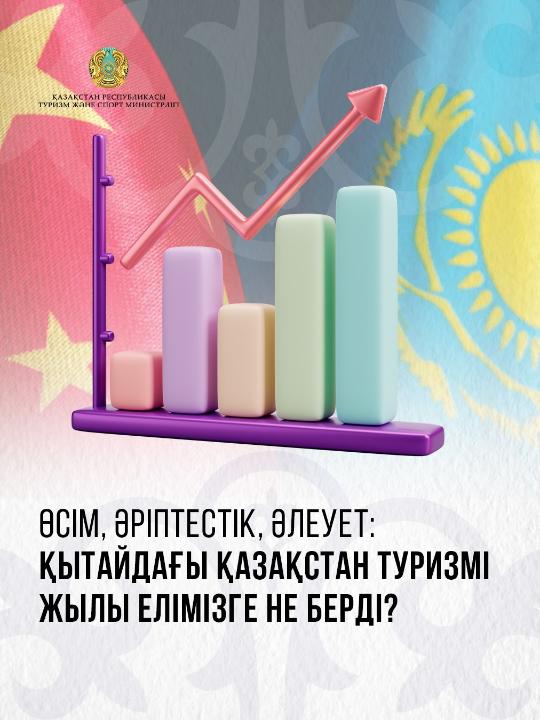
In 2024, the Year of Kazakhstan Tourism in China significantly enhanced the country’s visibility as an attractive travel destination. The number of tourists from China increased by 78% compared to 2023—from 367,000 to 655,000 visitors. The export of tourism services exceeded USD 300 million.
As part of the Year of Kazakhstan Tourism in China, 37 major events were held, and over 200 agreements were signed with leading tourism companies. The implementation of the tourism year program contributed to strengthening cultural and business ties, promoting tourism products, and positioning Kazakhstan as a new destination in one of the world’s largest outbound tourism markets.
According to the eQonaq information system, visitors from China most frequently traveled to Almaty, Astana, the Almaty Region and Zhetysu Region, Shymkent, as well as the Aktobe and East Kazakhstan regions.
Regional tourism days, theatre troupe tours, and exhibitions in major Chinese cities offered a wide audience an opportunity to experience Kazakhstan’s culture, traditions, music, and cuisine. Kazakhstan also participated in international tourism exhibitions such as COTTM, ITB China, and ITE Hong Kong, where more than 50 new partnerships were established with leading Chinese tour operators.
The events held as part of the Year of Kazakhstan Tourism in China not only opened new opportunities for tourists but also strengthened partnerships, demonstrated significant interest from the Chinese public in Kazakhstan’s culture and natural heritage, and laid the foundation for the sustainable growth of inbound tourism. This successful initiative will continue: 2025 has been declared the Year of China Tourism in Kazakhstan, during which both countries will further expand cooperation and promote bilateral tourism exchange.
As part of the ongoing Year of China Tourism in Kazakhstan, the Ministry of Tourism and Sports of the Republic of Kazakhstan has launched a number of proposals aimed at deepening bilateral cooperation and developing tourism infrastructure.
Notably, Kazakhstan plans to introduce the Welcome Chinese program, enabling hotels, travel agencies, and tourist attractions to adapt services to the preferences of Chinese visitors. Other initiatives include hosting a cross-border marathon that integrates tourism, sports, and culture, as well as fostering academic mobility between specialized universities in both countries to exchange knowledge, share best practices, and train professionals in the tourism sector.